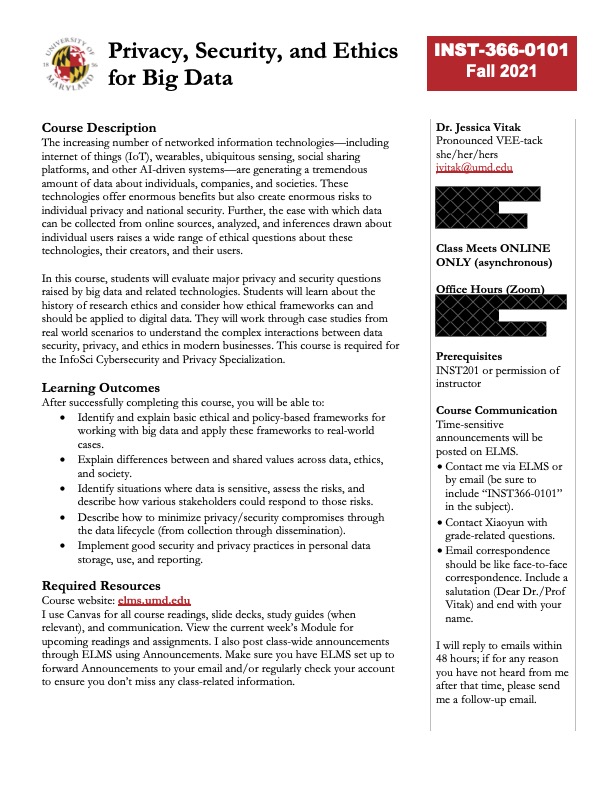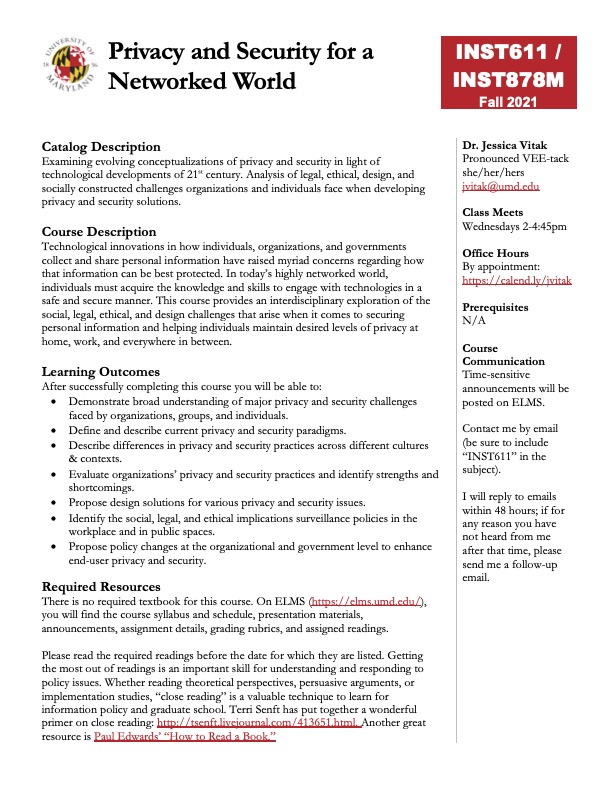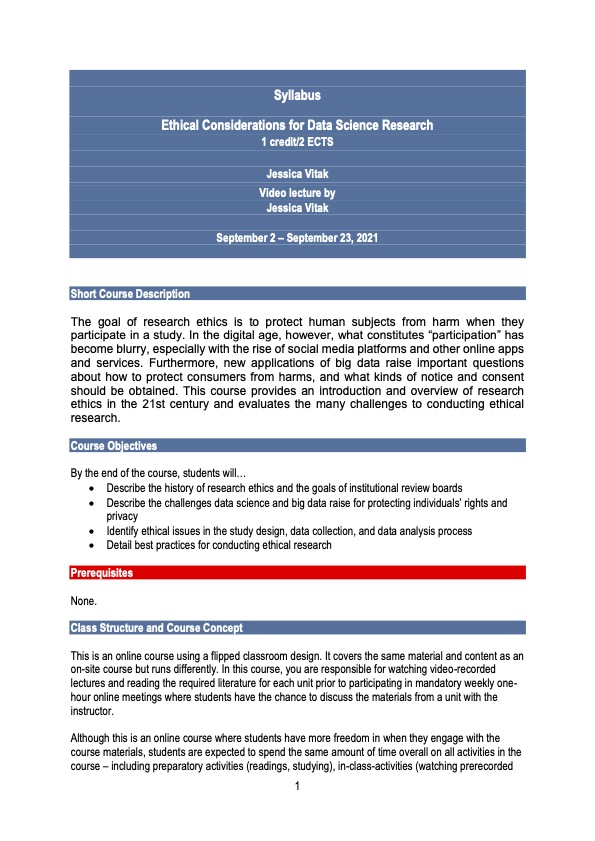Privacy Education
As part of two grants (IMLS award on privacy resources for low-income families and NSF award on privacy and security curriculum for elementary school students), Vitak and her Co-PIs have been developing educational resources for children and families.
See the Safe Data | Safe Families project website to access:
- Password Mania, a card game that teaches children about building strong passwords
- Password worksheets for children (in English and Spanish)
- A virtual escape room for elementary school children
- A choose-you-own-adventure story for middle school children
- Coloring pages for young children with tips for parents on how to talk to their children and social and mobile media.
Vitak has developed several classes that cover technology innovations and the privacy, security, surveillance, and ethical challenges the raise. Below are syllabi and course descriptions.

INST366 Privacy, Security, and Ethics for Big Data (3 credits / undergraduate)
Course Description:The increasing number of networked information technologies— including internet of things (IoT), wearables, ubiquitous sensing, social sharing platforms, and other AI-driven systems—are generating a tremendous amount of data about individuals, companies, and societies. These technologies offer enormous benefits but also create enormous risks to individual privacy and national security. Further, the ease with which data can be collected from online sources, analyzed, and inferences drawn about individual users raises a wide range of ethical questions about these technologies, their creators, and their users. In this course, students will evaluate major privacy and security questions raised by big data and related technologies. Students will learn about the history of research ethics and consider how ethical frameworks can and should be applied to digital data. They will work through case studies from real world scenarios to understand the complex interactions between data security, privacy, and ethics in modern businesses.
Additional Details: I created this course in 2018 to be one of the core courses in our Cybersecurity & Privacy specialization in the InfoSci bachelor’s degree. The course is driven by case studies, so in addition to the syllabus, I’m also linking to a Google Drive with the course assignments. FA21 syllabus [pdf] | Google Drive for Assignments [link]

INST611//INST878M: Privacy and Security for a Networked World (3 credits / graduate)
Course Description:Technological innovations in how individuals, organizations, and governments collect and share personal information have raised myriad concerns regarding how that information can be best protected. In today’s highly networked world, individuals must acquire the knowledge and skills to engage with technologies in a safe and secure manner. This course provides an interdisciplinary exploration of the social, legal, ethical, and design challenges that arise when it comes to securing personal information and helping individuals maintain desired levels of privacy at home, work, and everywhere in between.

SURV612: Ethical Considerations for Data Science Research (1 credit/graduate)
Course Description: Networked technologies—including the internet of things (IoT), wearables, ubiquitous sensing, social sharing platforms, and other AI-driven systems—are generating a tremendous amount of data about individuals, companies, and societies. These technologies provide a range of new opportunities for data scientists and researchers to understand human behavior and develop new tools that benefit society. At the same time, the ease with which data can be collected and analyzed raises a wide range of ethical questions about these technologies, their creators, and their users. In recent years, we have seen numerous examples of research and technologies that are ethically problematic. Therefore, it is critical that data scientists and others who will be working with big data can critically assess the potential risks and benefits of any end products, whether they are developing a search engine or a tool for detecting terrorists. This course will provide an overview of key ethical issues that arise when working with big data, and it will provide opportunities to review and reflect on past mistakes in this space.

